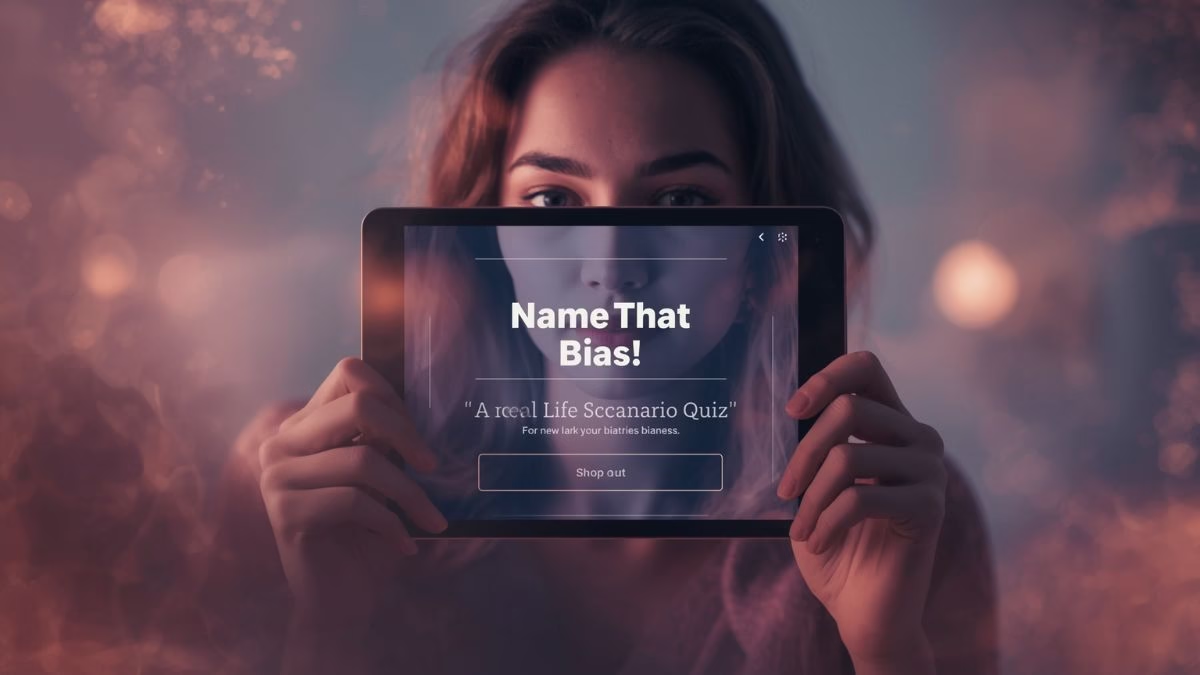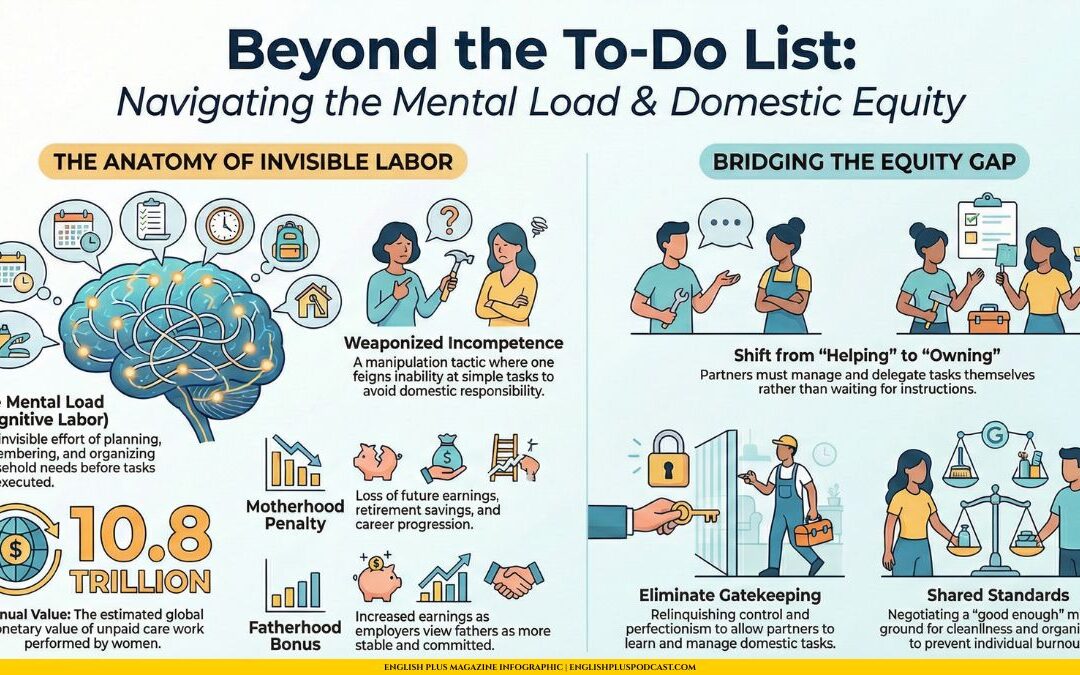Can You Name Your Brain’s Hidden Glitches? 🧠
Welcome to “Name That Bias!” We all think we’re rational, but our brains are constantly using mental shortcuts to navigate the world. These shortcuts, known as cognitive biases, are like hidden glitches in our mental software, influencing everything from what we buy to how we judge others.
What’s the benefit of learning to spot these biases? It’s like being given the owner’s manual for your own mind. By understanding these patterns, you can make smarter financial decisions, become a better teammate and leader, avoid common thinking traps, and gain a fascinating insight into why people (including you!) behave the way they do. This quiz will present you with 20 everyday scenarios. Your challenge is to identify the bias at play. Let’s get started!
Learning Quiz
This is a learning quiz from English Plus Podcast, in which, you will be able to learn from your mistakes as much as you will learn from the answers you get right because we have added feedback for every single option in the quiz, and to help you choose the right answer if you’re not sure, there are also hints for every single option for every question. So, there’s learning all around this quiz, you can hardly call it quiz anymore! It’s a learning quiz from English Plus Podcast.
Quiz Takeaways | Decoding Your Mind: A Field Guide to Everyday Biases
Congratulations on completing the quiz! You’ve just taken a tour of the mind’s most common glitches, shortcuts, and illusions. Recognizing these biases in relatable scenarios is the first and most important step toward clearer thinking. It’s not about eliminating these biases—they are a core part of being human—but about understanding them so you can pause, question your initial gut reaction, and make a more considered choice. Let’s recap some of the key players you met.
First, we have the biases that warp our perception of risk and probability. The most powerful of these is the Availability Heuristic. Our brains are lazy; they don’t like statistics. Instead, they judge the likelihood of something based on how easily an example comes to mind. That’s why a single, vivid news story about a shark attack or lottery winner can feel more significant than all the statistical data in the world. This is a crucial bias to understand when making decisions about everything from your health to your finances.
Next are the biases that affect how we see ourselves and our abilities. The Self-Serving Bias is our internal ego-defense lawyer, taking credit for our successes and blaming outside forces for our failures. Its cousin, the IKEA Effect, makes us overvalue things we’ve put our own labor into, whether it’s a piece of furniture we assembled or a project we bled for at work. Understanding these biases can help us evaluate our own work more objectively and give credit where it’s due. The Dunning-Kruger Effect, the tendency for novices to be blissfully unaware of their own incompetence, is also in this category. It reminds us that true expertise often comes with a dose of humility.
Then we have the biases that trap us in bad decisions. The undisputed king here is the Sunk Cost Fallacy. This is the voice in your head that says, “We can’t stop now, we’ve already invested too much!” It makes us throw good money after bad in projects, relationships, and even when finishing a terrible meal we paid for. The best defense is to always ask, “Knowing what I know now, what is the best decision for the future, regardless of the past?” The Anchoring Bias is another trap, where the first piece of information we receive (often a price) tethers our thinking, influencing negotiations and our perception of value.
Many of the most powerful biases are social; they dictate how we interact with others. Confirmation Bias is the engine of polarization, making us seek out information that supports our existing beliefs and ignore anything that challenges them. The Halo Effect makes us think that because someone is good at one thing (like being attractive), they must be good at other things (like being honest). In-Group Favoritism is the “us vs. them” instinct that makes us automatically trust people from our “tribe” more than outsiders. And the Bandwagon Effect is the powerful pull of the crowd, urging us to do something simply because everyone else is.
Finally, we saw how the presentation of information can dramatically change our choices. The Framing Effect shows that the same statistic, framed as a gain (“90% success rate”) versus a loss (“10% mortality rate”), can lead to completely different decisions. This teaches us to always look past the frame to the raw numbers or facts beneath. The Decoy Effect is an even sneakier framing tactic, where a strategically bad third option is introduced to make a target option look like a great deal.
By learning to name these biases, you’ve gained a new vocabulary for understanding human behavior. You can now see the Anchoring Bias at play in a negotiation, spot the Availability Heuristic in a fearful headline, and recognize the Sunk Cost Fallacy in a team meeting. This knowledge is a toolkit. Use it to question your assumptions, to understand the perspectives of others, and to navigate the complexities of the world with a little more wisdom and a lot more clarity.










0 Comments